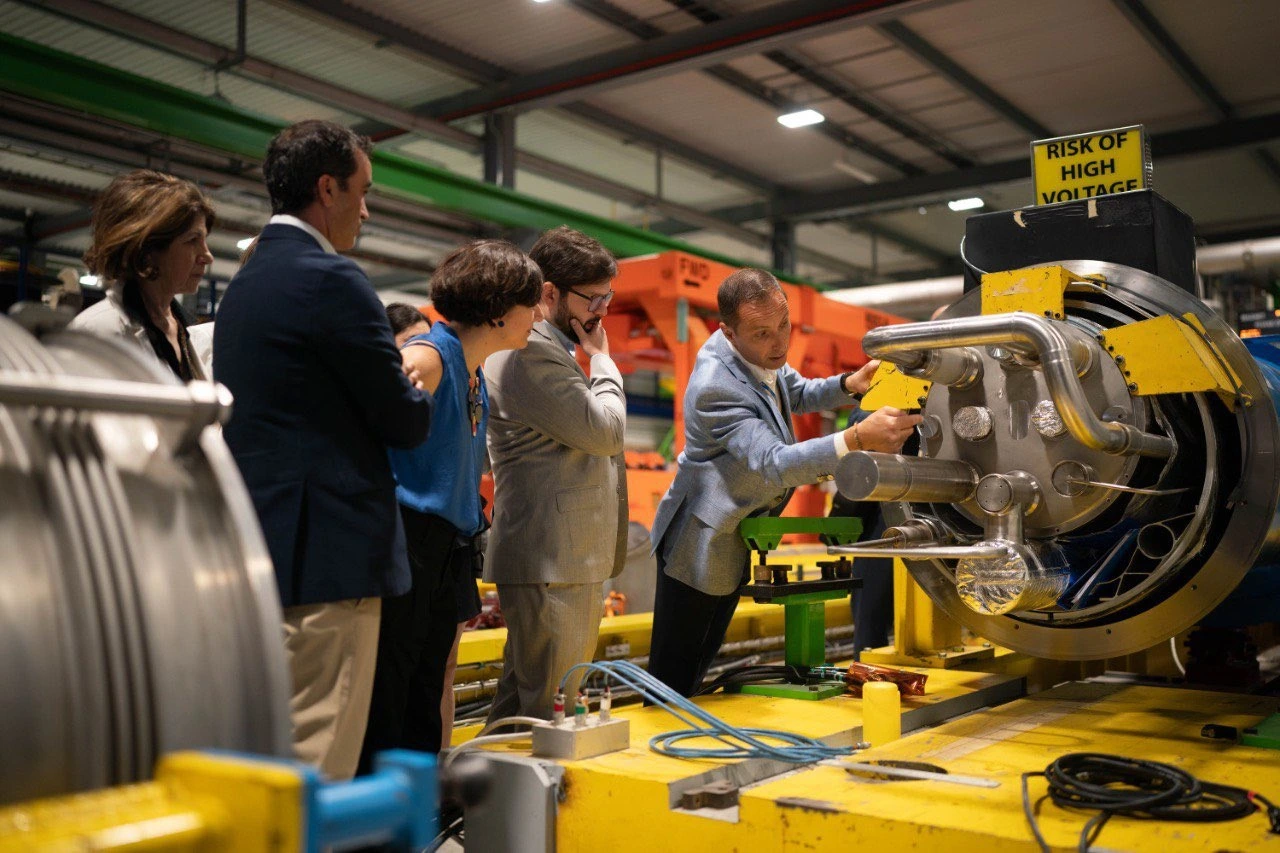
A real milestone for Chile in terms of international scientific cooperation took place in Geneva, Switzerland: the signing by Minister Aisén Etcheverry of the agreement for the country to become an Associate Member State of CERN. The decision is part of a State policy that seeks to project Chilean science and technology into the global ecosystem of frontier research, and to position the country as a relevant actor in international scientific governance.
CERN's Director General, Fabiola Gianotti, and Minister Etcheverry signed the agreement that will allow the country to formally participate in its scientific and training programs, and to incorporate national researchers and technicians as CERN personnel.
In addition, Chilean companies will be able to participate in the highly specialized international tenders that arise there on a permanent basis, and Chile will be able to have official representation in CERN's decision-making bodies, such as the Council and the Science Policy Committee.
The country's annual financial contribution has been estimated at approximately 1.7 million Swiss francs (approximately $2,192 million Chilean pesos).
"It is a great pleasure to welcome Chile as an Associate Member State of CERN. Chile has a strong tradition in experimental and theoretical physics and engineering, and its participation in CERN's experimental programs has grown and expanded significantly over the years. This new status represents an exciting development, offering opportunities to expand scientific cooperation, foster technological innovation and support education and training," said Fabiola Gianotti, Director General of CERN.
The Minister of Science, Technology, Knowledge and Innovation, Aisén Etcheverry celebrated the history behind the signing: "This is a historic moment for Chilean science and technology, which began in 2007, when President Michelle Bachelet visited Switzerland and an agreement was signed between CERN and CONICYT that allowed the incorporation of the Chilean scientific community in their experiments. Last year, President Gabriel Boric had the vision to continue advancing and asked us, from the Ministry of Science, to concretize as soon as possible the application of Chile as an associated state. Having CERN's approval today is an indicator of the maturity and technical quality of our technological industry, which was evaluated by a commission that traveled to Chile especially for this purpose, and which has been built on a science of excellence that already participates in this experiment through the Millennium Institute SAPHIR and the Scientific and Technological Center of Valparaiso".
Chile's membership will become effective once CERN is informed that the country has completed all the necessary accession and ratification processes. When the National Congress approves the associated agreement and protocol, and CERN is officially notified, Chile will have the status of Member State, with indefinite validity.
Why CERN?
The European Center for Nuclear Research (CERN) is one of the world's most important research centers and is at the heart of particle physics research. It was founded in 1954 in Geneva and is supported by 22 European member states. Some 12,000 scientists from all over the world come to CERN for research aimed at increasing knowledge about the universe.
"As a partner country, Chile will be able to advance even further and participate in the bids for this experiment, which seeks answers at the frontier of the possible. It is a great opportunity for Chilean technology: to respond and offer international level solutions to a giant like CERN. There are great challenges ahead for our industry and we are sure that we have the maturity to face them", concluded Minister Etcheverry.
Read the original news on the Ministry of Science website.




